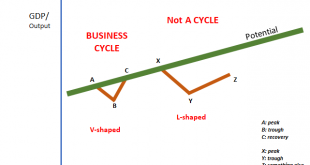Panel with Elga Bartsch, Agnès Bénassy-Quéré, Giancarlo Corsetti, Olivier Garnier, and Charles Wyplosz. Moderated by Tobias Broer. Elga Bartsch, Agnès Bénassy-Quéré, Giancarlo Corsetti, Xavier Debrun: Geneva Report 23 | It’s All in the Mix: How Monetary and Fiscal policies Can Work or Fail Together. Event at PSE. My comments on the report.
Read More »You Will Never Bring It Back Up If You Have No Idea Why It Falls Down And Stays Down
It wasn’t actually Keynes who coined the term “pump priming”, though he became famous largely for advocating for it. Instead, it was Herbert Hoover, of all people, who began using it to describe (or try to) his Reconstruction Finance Corporation. Hardly the do-nothing Roosevelt accused Hoover of being, as President, FDR’s predecessor was the most aggressive in American history to that point, economically speaking. Roosevelt just took it a step (or seven) further....
Read More »Pecuniary Externalities and Aggregate Demand Externalities
In Econometrica, Emmanuel Farhi and Iván Werning neatly summarize how their work on demand externalities fits in the literature. … pecuniary externalities, which were first shown to arise when a simple friction, market incompleteness, is introduced into the Arrow–Debreu framework (see, e.g., Hart (1975), Stiglitz (1982), Geanakoplos and Polemarchakis (1985), Geanakoplos, Magill, Quinzii, and Dreze (1990)). The logic is as follows. When asset markets are incomplete and there is more than...
Read More »Secular Stagnation Skepticism
I was asked to play devil’s advocate in a debate about “secular stagnation.” Here we go: Alvin Hansen, the “American Keynes” predicted the end of US growth in the late 1930s—just before the economy started to boom because of America’s entry into WWII. Soon, nobody talked about “secular stagnation” any more. 75 years later, Larry Summers has revived the argument. Many academics have reacted skeptically; at the 2015 ASSA meetings, Greg Mankiw predicted that nobody would talk about secular...
Read More »Economics: The Core
The Economist reviews core ideas in economics. The introductory article points out that economists’ fundamental mission is not to forecast recessions but to explain how the world works. It argues that economists have delivered and it discusses six exemplary areas of economic research: Nash equilibrium; Mundell-Fleming trilemma; Minsky financial-instability; Stopper-Samuelson effect of trade on wages; Keynes fiscal-multiplier; and Akerlof’s and others’ work on information asymmetries....
Read More » Swiss Economicblogs.org
Swiss Economicblogs.org

